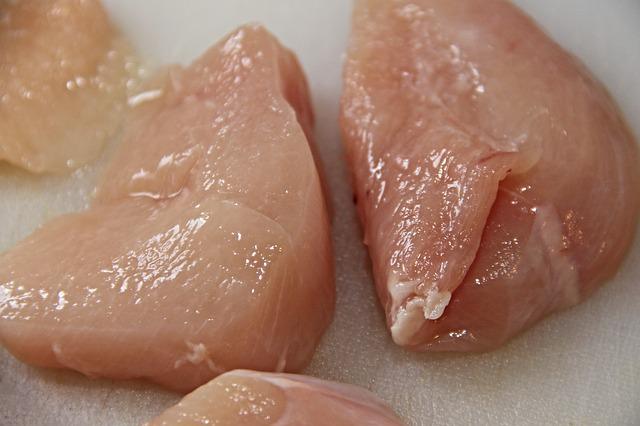The USDA Food Safety and Inspection Service (FSIS) announced that it is rethinking its approach to how it addresses Salmonella in poultry based on the findings of a recent study, ”Assessing the Effectiveness of Revised Performance Standards for Salmonella Contamination of Chicken Parts,” published in the International Journal of Food Microbiology.
Michael S. Williams, et al, examined changes in Salmonella occurrence within the chicken parts industry following implementation of a new set of FSIS standards, announced in 2015 and implemented in 2016.
The standards were chosen based on the assumption that the program would lead to a 30% reduction in the occurrence of Salmonella-contaminated chicken parts samples. While the new analysis showed a much higher than anticipated reduction in Salmonella-contaminated chicken parts (more than 75%), the FSIS notes that this has not translated to a reduction in Salmonella-related illnesses attributable to poultry products.
A Shift in Seasonal Patterns and Salmonella Serotypes
In examining data collected between April 1, 2015 through December 31, 2020, the authors found a significant change in Salmonella serotypes in sampled products, an increase in antimicrobial resistant strains and a shift in seasonal occurrence of Salmonella.
Occurrence of Salmonella in poultry products has traditionally peaked in the summer months. However, in what the authors called one of the most surprising findings of the study, review of data from 2015-2020 showed a mid-winter peak with lower rates of occurrence in the summer.
The study also found that while Salmonella Enteritidis and Kentucky—two of the most common serotypes—decreased significantly, Salmonella Infantis demonstrated a rapid increase from less than 4% of positive samples in 2015 to 25% in 2020. This signals a growing area of concern as a larger portion of Infantis isolates are classified as multi-drug resistant. The authors noted that with no new interventions, “Infantis will likely become the dominant Salmonella serotype in chicken parts.”
The increase of the Infantis serotype as well as the apparent failure of the 2015 standards to reduce the occurrence of Salmonella-related illnesses attributable to poultry products is why FSIS is rethinking its approach to how it addresses Salmonella in poultry. This will include taking a closer look at the agency’s reliance on performance standards, and whether they need to be revised.
FSIS is collaborating with stakeholders and gathering information to develop a multi-step approach to reducing Salmonella illnesses associated with poultry products. The agency plans to present a draft framework for a revised strategy and convene a public meeting to discuss it in the Fall.



